Kohei Ozaki
Two-stage Discriminative Re-ranking for Large-scale Landmark Retrieval
Mar 25, 2020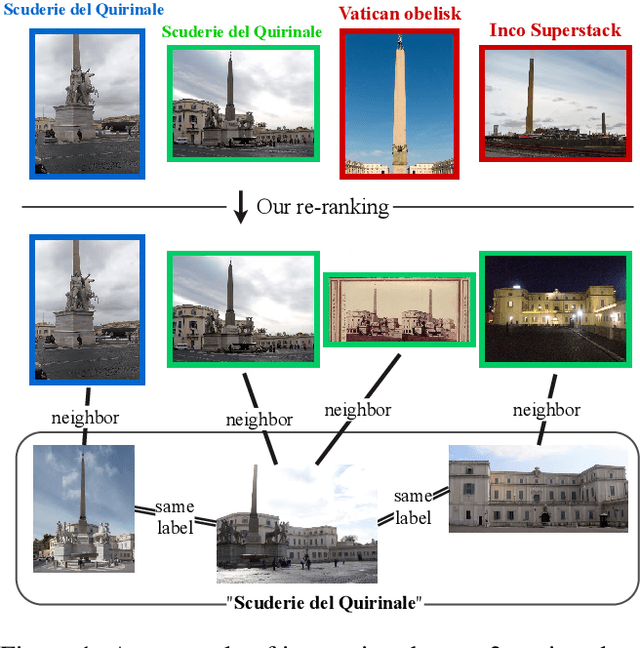

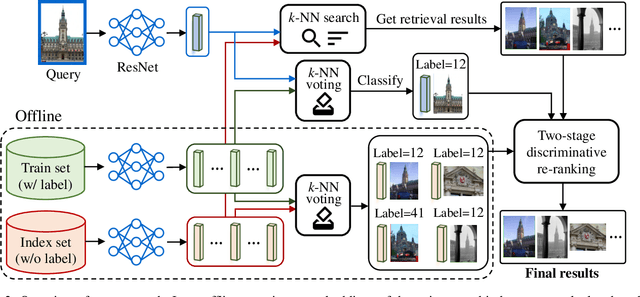
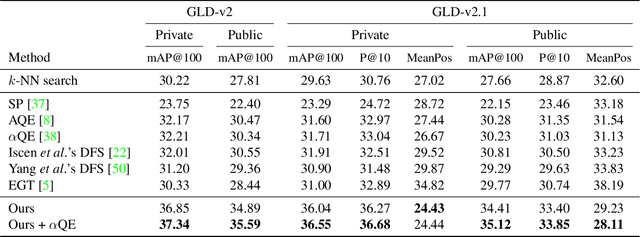
Abstract:We propose an efficient pipeline for large-scale landmark image retrieval that addresses the diversity of the dataset through two-stage discriminative re-ranking. Our approach is based on embedding the images in a feature-space using a convolutional neural network trained with a cosine softmax loss. Due to the variance of the images, which include extreme viewpoint changes such as having to retrieve images of the exterior of a landmark from images of the interior, this is very challenging for approaches based exclusively on visual similarity. Our proposed re-ranking approach improves the results in two steps: in the sort-step, $k$-nearest neighbor search with soft-voting to sort the retrieved results based on their label similarity to the query images, and in the insert-step, we add additional samples from the dataset that were not retrieved by image-similarity. This approach allows overcoming the low visual diversity in retrieved images. In-depth experimental results show that the proposed approach significantly outperforms existing approaches on the challenging Google Landmarks Datasets. Using our methods, we achieved 1st place in the Google Landmark Retrieval 2019 challenge and 3rd place in the Google Landmark Recognition 2019 challenge on Kaggle. Our code is publicly available here: \url{https://github.com/lyakaap/Landmark2019-1st-and-3rd-Place-Solution}
Team PFDet's Methods for Open Images Challenge 2019
Oct 25, 2019

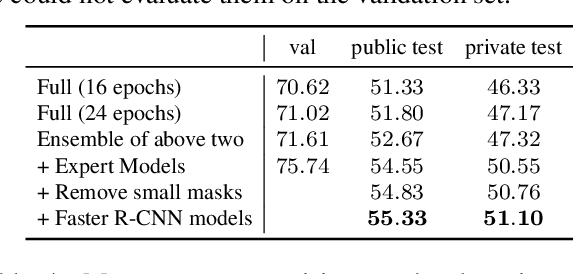

Abstract:We present the instance segmentation and the object detection method used by team PFDet for Open Images Challenge 2019. We tackle a massive dataset size, huge class imbalance and federated annotations. Using this method, the team PFDet achieved 3rd and 4th place in the instance segmentation and the object detection track, respectively.
Large-scale Landmark Retrieval/Recognition under a Noisy and Diverse Dataset
Jun 11, 2019


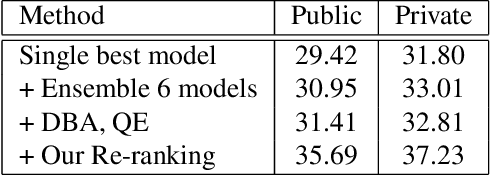
Abstract:The Google-Landmarks-v2 dataset is the biggest worldwide landmarks dataset characterized by a large magnitude of noisiness and diversity. We present a novel landmark retrieval/recognition system, robust to a noisy and diverse dataset, by our team, smlyaka. Our approach is based on deep convolutional neural networks with metric learning, trained by cosine-softmax based losses. Deep metric learning methods are usually sensitive to noise, and it could hinder to learn a reliable metric. To address this issue, we develop an automated data cleaning system. Besides, we devise a discriminative re-ranking method to address the diversity of the dataset for landmark retrieval. Using our methods, we achieved 1st place in the Google Landmark Retrieval 2019 challenge and 3rd place in the Google Landmark Recognition 2019 challenge on Kaggle.
 Add to Chrome
Add to Chrome Add to Firefox
Add to Firefox Add to Edge
Add to Edge